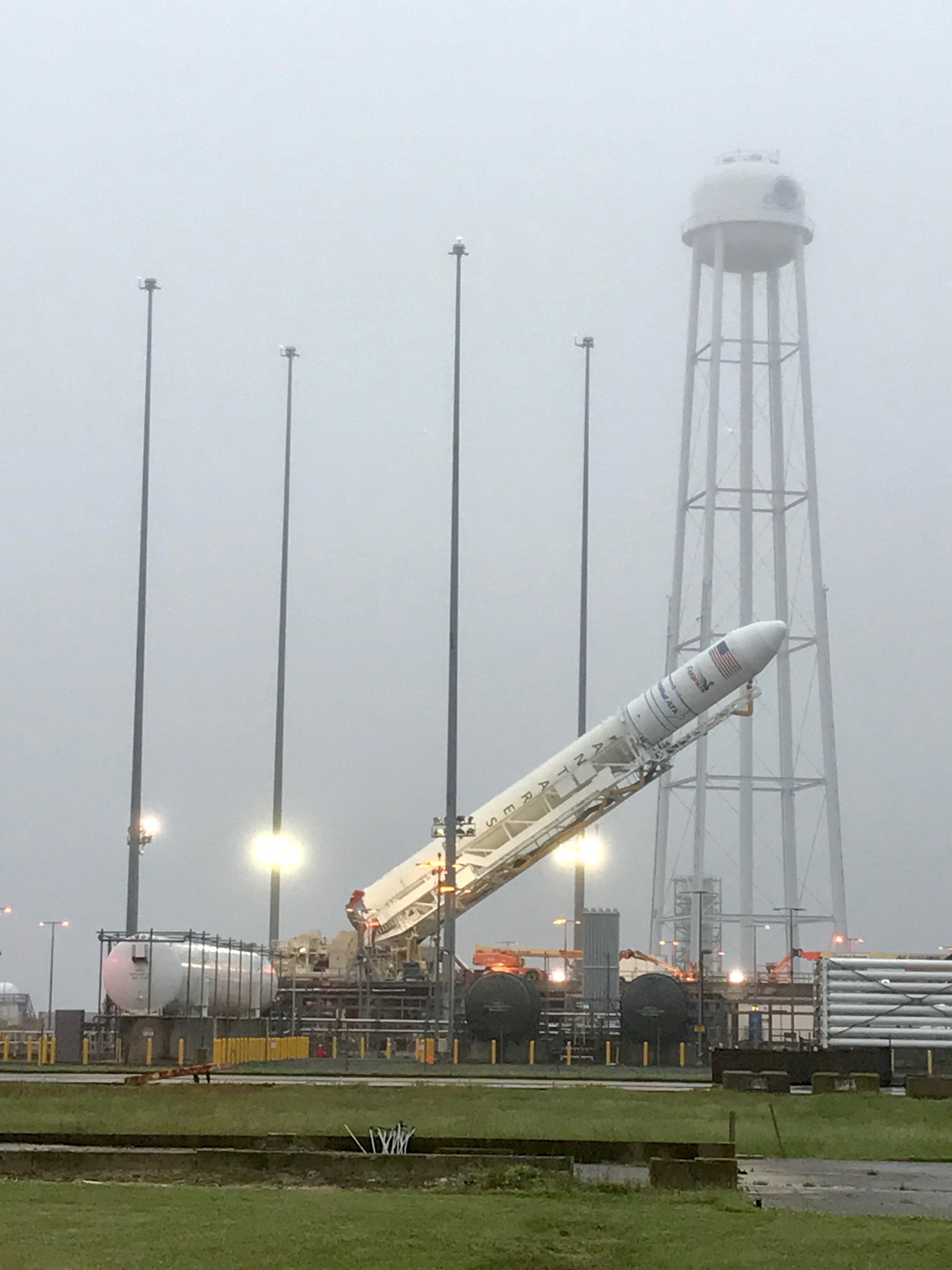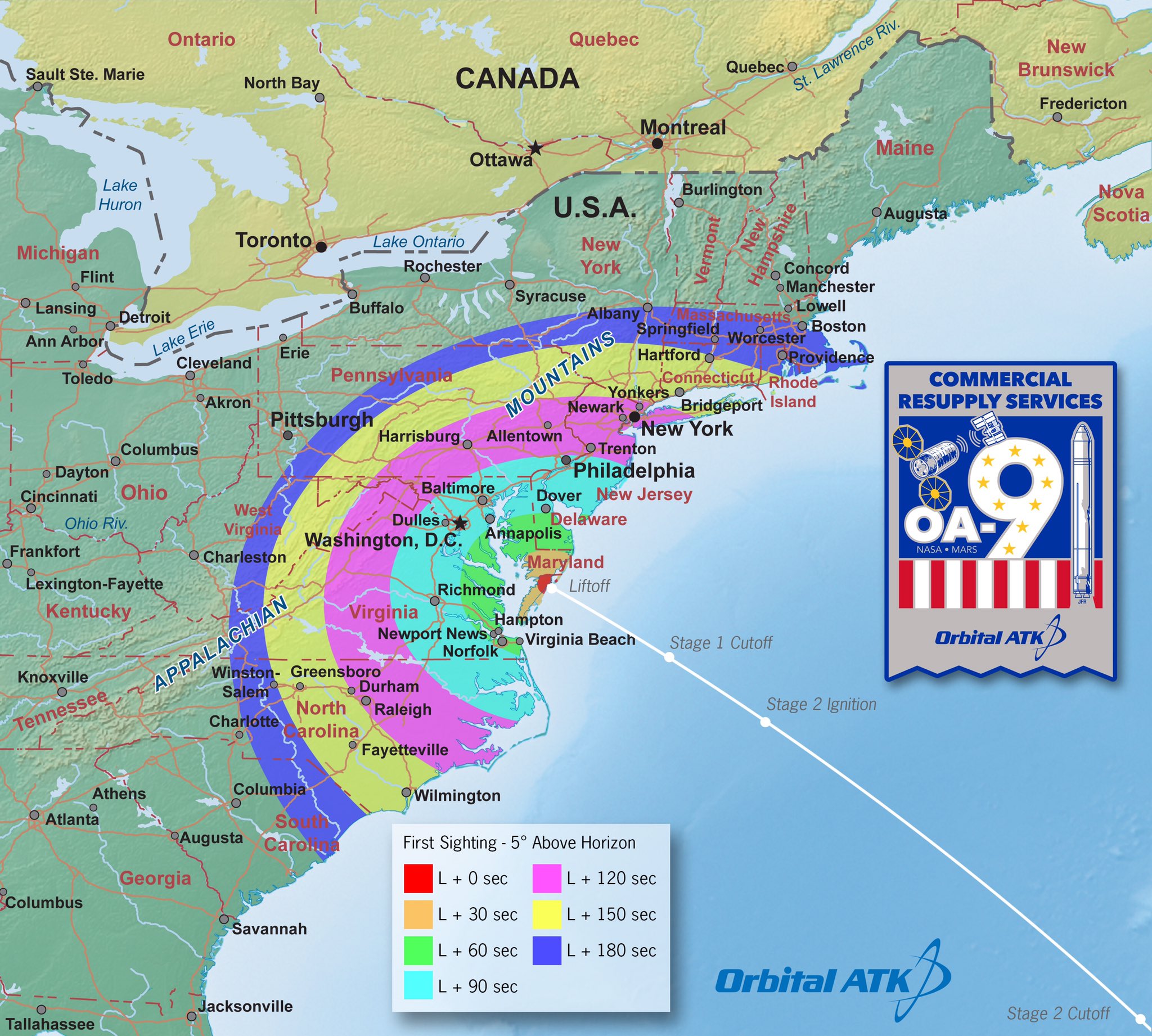
The Mid Atlantic rocket launch originally scheduled for Sunday has been delayed. Orbital ATK and NASA announced that they have moved the Antares and Cygnus launch to no-earlier-than Monday, May 21 at 4:39am ET to “support further pre-launch inspections and more favorable weather conditions.” In the last update, Monday’s forecast shows an 80% probability of acceptable weather for launch. The early morning launch should be visible over a large part of the Mid Atlantic if the weather cooperates. To view the rocket lifting off, you need to be in an area free of most light pollution and clouds. With twilight starting at 5:16am and sunrise at 5:46am, the sun-free skies should become illuminated by the rocket engines and visible for a far distance if Mother Nature cooperates.

Cygnus will deliver vital equipment, supplies and scientific experiments to astronauts aboard the ISS.
Designed to provide responsive and low-cost access to space, Antares is a two-stage vehicle that provides low-Earth orbit (LEO) launch capability for payloads weighing up to 8,000 kg. Internally funded by Orbital ATK, Antares completed a risk reduction mission and a demonstration of commercial re-supply services for the ISS under a NASA Commercial Orbital Transportation Services (COTS) agreement in 2013. Orbital ATK commenced delivery of cargo to the ISS under the NASA Commercial Resupply Services (CRS) contract in 2014.
The last launch of the Antares rocket at NASA Wallops occurred last year on November 12. That mission successfully brought 7,400 pounds of supplies and science to the ISS.
Cargo is delivered to the station using Orbital ATK’s Cygnus spacecraft. The Cygnus spacecraft consists of two modules: the Service Module (SM) which incorporates the avionics, propulsion and power systems from Orbital ATK’s LEOStar and GEOStar spacecraft buses; and the Pressurized Cargo Module (PCM) which carries the crew supplies, spares and scientific experiments. The SM is integrated and tested at Orbital ATK’s Dulles, Virginia satellite manufacturing facility. The PCM is supplied by Thales Alenia Space and is produced in Turin Italy.
The May mission is known as OA-9.